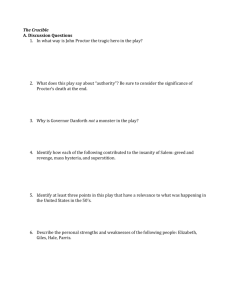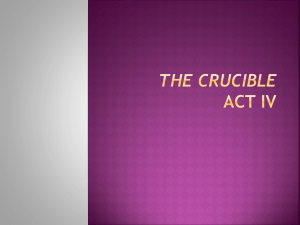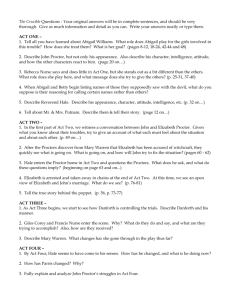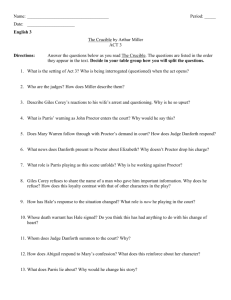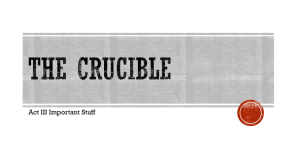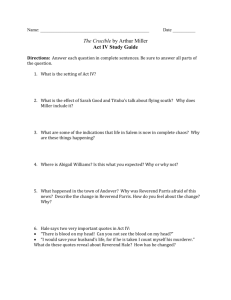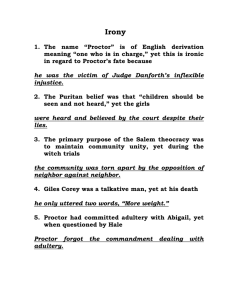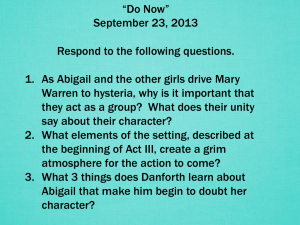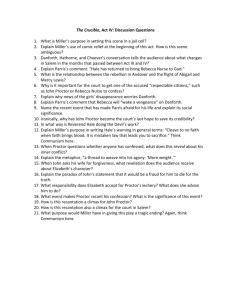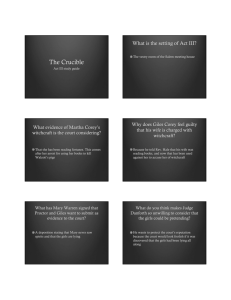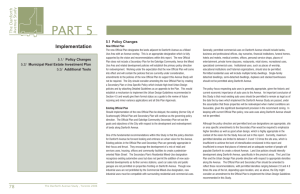The Crucible, Act III: Discussion Questions
advertisement
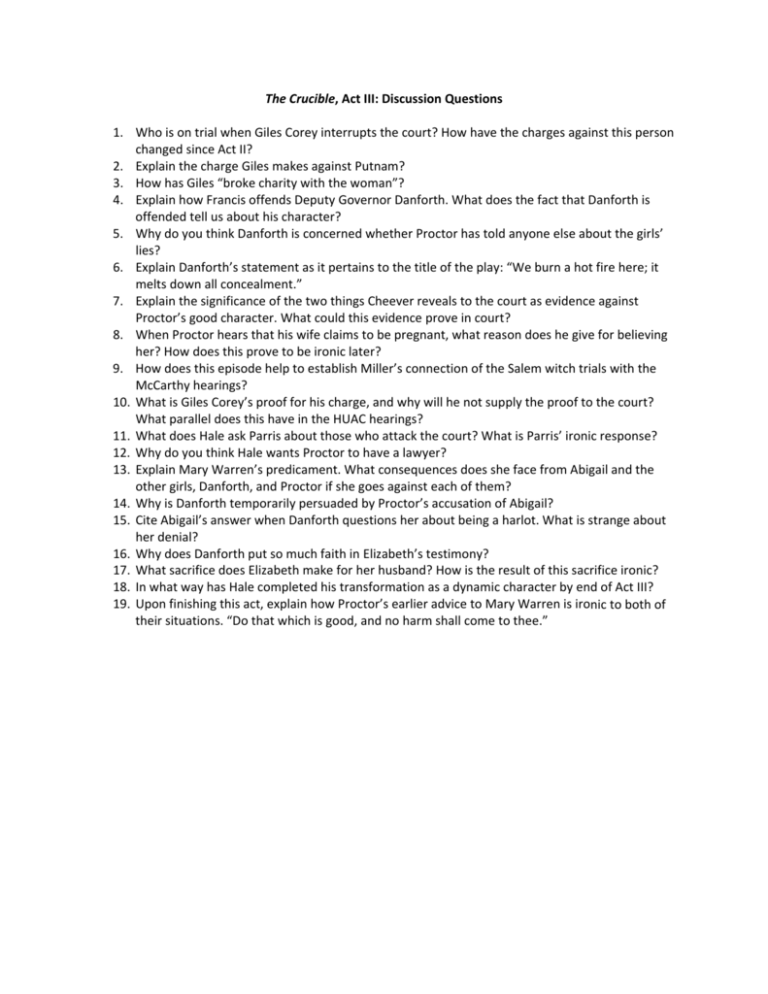
1. 2. 3. 4. 5. 6. 7. 8. 9. 10. 11. 12. 13. 14. 15. 16. 17. 18. 19. The Crucible, Act III: Discussion Questions Who is on trial when Giles Corey interrupts the court? How have the charges against this person changed since Act II? Explain the charge Giles makes against Putnam? How has Giles “broke charity with the woman”? Explain how Francis offends Deputy Governor Danforth. What does the fact that Danforth is offended tell us about his character? Why do you think Danforth is concerned whether Proctor has told anyone else about the girls’ lies? Explain Danforth’s statement as it pertains to the title of the play: “We burn a hot fire here; it melts down all concealment.” Explain the significance of the two things Cheever reveals to the court as evidence against Proctor’s good character. What could this evidence prove in court? When Proctor hears that his wife claims to be pregnant, what reason does he give for believing her? How does this prove to be ironic later? How does this episode help to establish Miller’s connection of the Salem witch trials with the McCarthy hearings? What is Giles Corey’s proof for his charge, and why will he not supply the proof to the court? What parallel does this have in the HUAC hearings? What does Hale ask Parris about those who attack the court? What is Parris’ ironic response? Why do you think Hale wants Proctor to have a lawyer? Explain Mary Warren’s predicament. What consequences does she face from Abigail and the other girls, Danforth, and Proctor if she goes against each of them? Why is Danforth temporarily persuaded by Proctor’s accusation of Abigail? Cite Abigail’s answer when Danforth questions her about being a harlot. What is strange about her denial? Why does Danforth put so much faith in Elizabeth’s testimony? What sacrifice does Elizabeth make for her husband? How is the result of this sacrifice ironic? In what way has Hale completed his transformation as a dynamic character by end of Act III? Upon finishing this act, explain how Proctor’s earlier advice to Mary Warren is ironic to both of their situations. “Do that which is good, and no harm shall come to thee.”

